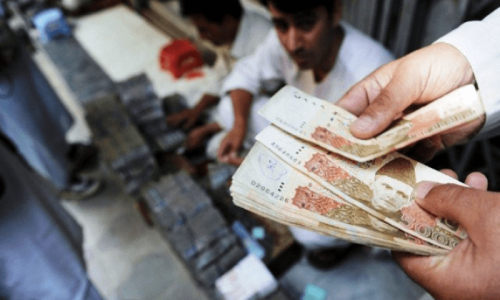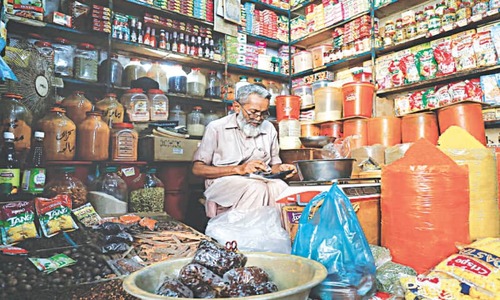ISLAMABAD: Pakistan could face up to 30-35 per cent water shortages during the upcoming kharif cropping season starting April 1. This could negatively affect some of the key cash crops like cotton and revive inter-provincial controversy over water allocations.
A clear picture of water availability for the season is expected to emerge on April 2 provided the Advisory Committee of the Indus River System Authority (Irsa) is able to settle a couple of very tricky questions based on critical input from the Water & Power Development Authority (Wapda) and snow deposit estimates from the Pakistan Meteorological Department (PMD).
Meanwhile, Wapda said the Neelum-Jhelum Hydroelectric Project has achieved its maximum generation capacity of 969MW after inspection of the tail race tunnel (TRT) that was blocked earlier.
The meeting of the advisory committee would be presided over by Irsa Chairman Abdul Hameed Mengal from Balochistan and to be attended by all other four Irsa members, provincial irrigation and agriculture secretaries, Wapda’s members for water and power, PMD chief, Federal Flood Commission and other operational formations of the irrigation network. The climate change conditions resulting in sudden rainfalls or longer drought-like spans make water predictability even more challenging.
Irsa’s advisory committee meets on April 2
Irsa’s Technical Committee could not finalise water availability estimates this week due to insufficient information about operational constraints at Tarbela Dam. Repairs and construction were ongoing at three major tunnels, and the Mangla powerhouse was being refurbished. The uncertainty has been further aggravated by the suspension of construction activities following the terrorist attack on Chinese workers.
Therefore, Wapda’s members for both water and power were asked to attend the Irsa Advisory Committee with an updated position on construction activities at the Tarbela and Mangla dams.
The provinces have already shared their input to Irsa on the basis of which the water shortages are estimated to range 30-35pc, which could slightly go up or down depending on Wapda’s precise updates as to the level of storage and possible discharges.
While tunnels three and four (T3 & T4) are closed for repairs and another low-level outlet was non-operational, T5 is also completely closed for 33 months since September 2022 for the Tarbela Hydropower Extension-5 project. Therefore, the Wapda members would inform the advisory committee which tunnel would be available on what dates for irrigation and how many units at Mangla dam would be operational for power generation.
Also, the PMD reported lower-than-normal snowfalls on the mountains in January, followed by a couple of rain and snowfalls in February and even March. The PMD update would also help determine expected river flows as both dams had already reached their dead ends, meaning negligible water storage.
Such shortfalls are likely to result in the continuation of three-tier formula for distribution of water shares among the provinces as currently in vogue to the dissatisfaction of Sindh which had been pushing for the application of para-2 of the 1991 water apportionment accord for water distribution.
For a few years, Irsa has maintained that it cannot change water distribution practices among the provinces to absorb water shortages in the Kharif season. The kharif cropping season starts in April and lasts until September. Rice, sugarcane, cotton, maize, and mash are some of the key crops of the season.
Under the 1991 water accord, the apportionment of water was made under para 2 of the agreement that fixed provincial shares. However, because of the shortages, this para has not been in application for more than a decade as Irsa, with the involvement of federal and provincial governments, put in place in 2002 a cascading water distribution share mechanism among provinces in the light of shortages. The 3-tier formula combines para-2, para-14(a) and historical uses of 1977-1982.
Published in Dawn, March 31st, 2024















































Dear visitor, the comments section is undergoing an overhaul and will return soon.